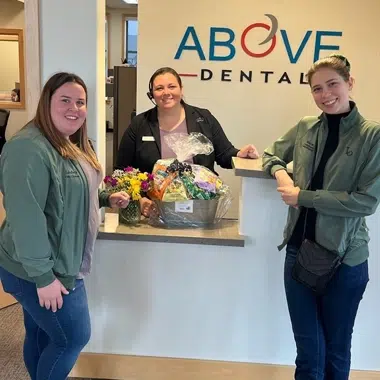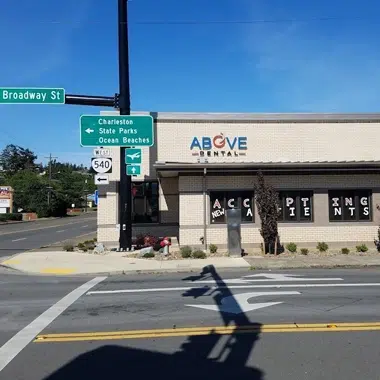
When Do I Need Emergency Dental Care?
Accidents to the mouth or teeth can happen and cause major pain and discomfort.Your tooth was completely or partially (such that the dental pulp is exposed) detached from its socket. This is also called an avulsion.
Your tooth was fractured or broken due to blunt force trauma.
You’re experiencing extreme pain and sensitivity, which hinders normal daily activities (work, school, leisure, etc.).
Your dental restoration (crown or bridge, denture, etc.) was broken or lost.
You’re experiencing other unusual oral problems that cause pain, discomfort, and anxiety, such as incessant bleeding, tenderness, inflammation, lockjaw, etc.
First Aid for Emergency Dental Situations
Our Above Dental team provides some expert advice on how to deal with emergencies.Tooth avulsion
An avulsed tooth, or a tooth that came out of its socket by force, can be saved within an hour of its avulsion. Time is critical. Since the tooth didn’t fall out on its own, the nerves and pulp remain alive, and the tooth can be reconnected back to the tissues underneath the socket.
However, it’s important to store the avulsed tooth properly. Here are the steps to follow in case of a tooth avulsion:
- Pick up the avulsed tooth by the crown and rinse it briefly with clean, warm water. Do not use alcohol or any other liquid cleanser.
- If the socket is not bleeding excessively, try to insert the tooth back inside. If this is too painful, get a clean container and fill it with fresh whole milk. Place the tooth in the whole milk to keep it alive.
- Get sterile cotton gauze and drench it in warm water or milk. Apply the gauze to the socket and bite it down to prevent bleeding or drying.
- Come to Above Dental as soon as possible because time is critical.
Broken/lost dental restorations
A dental restoration that has come loose (crown, bridge, veneer) can be reattached if it hasn’t lost its shape.
You can use an over-the-counter dental cement available at most drug stores. Rinse the restoration and pat it dry before using the dental cement to stick it back in place.
Whether or not you decide to reattach it, visit our office so our dentists can check if the restoration can be permanently bonded to the tooth. If it’s no longer sturdy enough to protect your tooth, or if the underlying tooth has decayed, placement of a new restoration may be recommended.
If the restoration was completely broken or lost, your tooth will become exposed, and this can result in sensitivity and leave your tooth more susceptible to decay. As soon as your restoration breaks, please call us and then come to our office immediately. Our restorative dentists will give you your options for treatment.
If the broken or lost restoration is for missing teeth (dentures or dental implants), getting treatment as soon as possible is best to avoid unwanted gaps. We may provide a temporary restoration while we make the new one.
Broken teeth
If your tooth has been fractured badly, it can become very sensitive and painful. You may take an over-the-counter pain reliever (acetaminophen, ibuprofen, etc.) as soon as this happens, so you won’t have to endure a lot of discomfort.
Please call our office so that we can prepare the necessary tools and equipment. As soon as you arrive, we’ll work on fixing the tooth either through bonding or filling. If the damage is quite large, a crown may be necessary to restore it.
Some broken teeth can’t be repaired, but we can recommend a natural-like restoration at our North Bend, OR dental practice.
Extreme tooth pain
If you’re feeling extreme pain in your tooth and the pain is affecting your speech, diet, and other daily activities, please visit our dental office right away.
Take a pain reliever to ease the discomfort while you’re on your way to our office. You can also use a small piece of cotton drenched in cold water to reduce inflammation or clove oil or chamomile to reduce pain.




